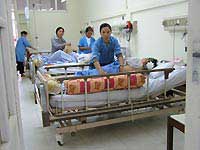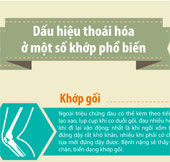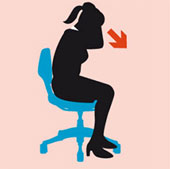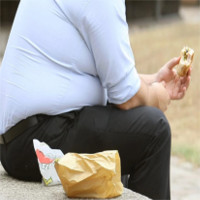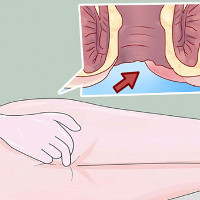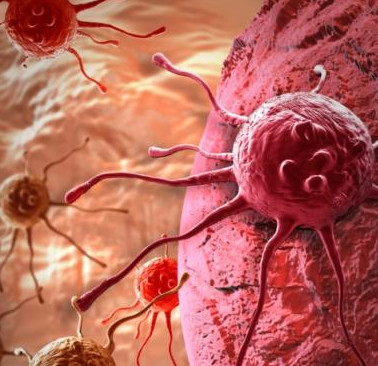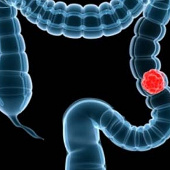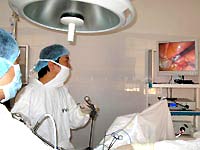TGĐ Hội đồng Ung thư Úc "chỉ mặt" nguyên nhân gây ung thư cực nhiều người Việt mắc
Giáo sư Ian Olver, nguyên TGĐ Hội đồng Ung thư Úc có bài chia sẻ về bệnh ung thư đại trực tràng.
Ung thư đại trực tràng là loại ung thư phổ biến, nhưng theo các nghiên cứu, có tới 2/3 số trường hợp có thể phòng tránh được bằng cách thay đổi lối sống.
Các yếu tố nguy cơ có thể can thiệp được để ngăn ngừa bệnh bao gồm bị thừa cân hay béo phì, ăn quá nhiều thịt đỏ - đặc biệt là thịt qua chế biến công nghiệp, hút thuốc, và sử dụng chất có cồn.
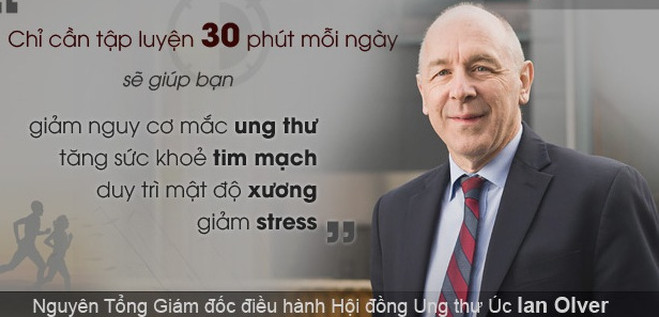
Chất có cồn
Mối liên hệ giữa rượu bia và ung thư đại trực tràng chưa được biết đến rộng rãi nhưng ở một số khu vực, rượu bia là một trong số các nguyên nhân gây ra tới 17% trường hợp ung thư đại trực tràng.
Bạn có nguy cơ ung thư đại trực tràng khi sử dụng chất có cồn (ở bất cứ lượng nào), và càng sử dụng nhiều nguy cơ càng tăng cao. Nguy cơ không phụ thuộc loại chất có cồn mà là tổng lượng cồn đã hấp thụ.
Để biết uống rượu bia làm tăng nguy cơ đại trực tràng ở nam giới như thế nào, có thể thấy qua tỷ lệ nam giới ở các quốc gia phát triển có 10% nguy cơ bị ung thư đại trực tràng.
Chỉ cần uống 1 cốc rượu bia chứa 10g cồn mỗi ngày có thể làm tăng nguy cơ tới 10% so với những người không sử dụng rượu bia.
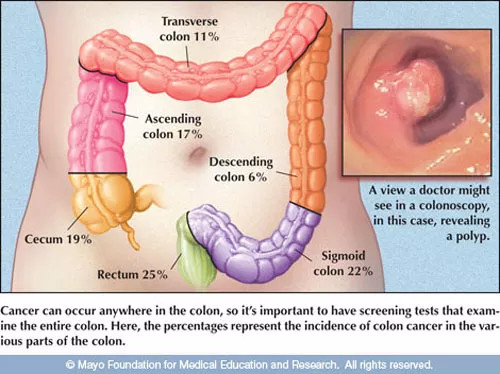
Hình ảnh polyp trong đại tràng, đây là một nguy cơ gây ung thư.
Cân nặng, chế độ ăn và vận động
Khá khó khăn để tách bạch ảnh hưởng của cân nặng, chế độ ăn và vận động đối với việc hình thành ung thư đại trực tràng.
Tuy nhiên, ước tính có 11% trường hợp ung thư đại trực tràng là do thừa cân, béo phì. Yếu tố này thậm chí gây nguy cơ cao hơn ở nam giới (lên tới 50%) và không phụ thuộc vào thời kỳ bị béo phì là lúc trẻ hay cao tuổi.
Sử dụng thịt đỏ, thịt qua chế biến công nghiệp cũng làm tăng nguy cơ ung thư. Tiêu thụ mỗi 50g thịt chế biến mỗi ngày làm tăng nguy cơ ung thư đại trực tràng lên tới 18%.
Chế độ ăn để giúp giảm nguy cơ là chứa nhiều rau củ và trái cây tươi (5 phần rau, 2 phần trái cây).
Có tới 14% trường hợp ung thư đại trực tràng là do ít vận động. Vận động cũng giúp giảm cân. 60 phút vận động từ trung bình tới mạnh mỗi ngày giúp giảm nguy cơ ung thư. Càng vận động nhiều càng giảm nguy cơ.
Hút thuốc góp phần vào 12% trường hợp ung thư. Ở nam giới, hút thuốc làm tăng nguy cơ ung thư đại trực tràng lên tới 20% so với những người không hút.
Triệu chứng cần phải chú ý
Các triệu chứng như thay đổi thói quen tiểu tiện, có máu ở phân hay bị đau và chướng bụng, sút cân có thể là các dấu hiệu để bạn đi kiểm tra.
Tuy nhiên, nên có thói quen kiểm tra định kỳ trước khi xuất hiệu triệu chứng, sử dụng phương pháp xét nghiệm máu trong phân FOBT giúp phát hiện các polyp trước khi chúng phát triển thành ung thư, hay giúp phát hiện ung thư ở giai đoạn rất sớm từ đó có thể điều trị bằng phẫu thuật.
Nếu kết quả xét nghiệm là dương tính, cần soi ruột kết để tìm nguyên nhân chảy máu. Xét nghiệm FOBT được khuyến nghị tiến hành 2 năm một lần khi ở tuổi 50-74.
Người trẻ hơn cũng có thể mắc ung thư vì vậy nếu ở nhóm nguy cơ cao cần xét nghiệm sớm hơn.
Những người ở nhóm nguy cơ cao là có tiền sử gia đình, các bệnh về di truyền như hội chứng lynch, những người bị bệnh viêm ruột kinh niên, những người đã từng xuất hiện polyp hay bị ung thư đại trực tràng trước đó.
Cuối cùng, một số thử nghiệm gần đây cho thấy uống một liều nhỏ aspirin mỗi ngày làm giảm nguy cơ đại trực tràng, đặc biệt đối với những người có nguy cơ cao.
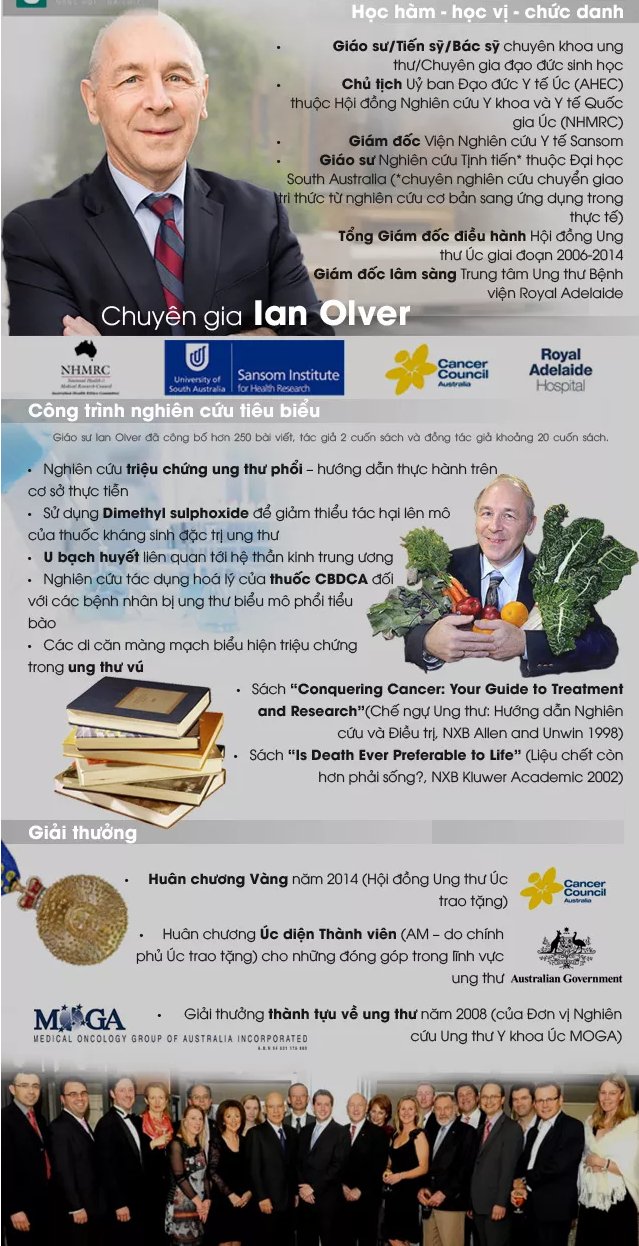
Chân dung Giáo sư Ian Olver. (Đồ họa: Đức Thắng)
BÀI VIẾT GỐC CỦA GS IAN OLVER Alcohol and reducing the risk of colorectal cancer Professor Ian Olver Director, Sansom Institute for Health Research University of South Australia Although colorectal cancer is common it is estimated that up to two thirds of bowel colorectal cancers could be prevented by lifestyle changes. Modifiable risk factors include being overweight or obese, a high consumption of red meat and especially processed meats, smoking, and alcohol consumption. The link between alcohol and colorectal cancer is not well publically known but in some populations up to 17% of colorectal cancers have been attributed to drinking alcohol. The risk starts with any alcohol consumption and increases with the amount consumed. It does not matter what type of alcohol, it is the cumulative amount consumed that determines the risk. To show how drinking alcohol increases a man's risk of colorectal cancer, men in developed countries have a 10% lifetime risk of being diagnosed with colorectal cancer. Just drinking one standard drink (10 gm of alcohol) every day would make that risk 10% higher than that of a man who doesn't drink. It can be difficult to separate the impact of weight, diet and exercise of the risk of developing colorectal cancer, however it has been estimated that 11% of colorectal cancers can be attributable to being overweight or obese. This association is greater in men where being obese increases the risk by 50% and does not depend on being obese in younger as compared to older adult life. The consumption of red meat and processed meats although associated with a small absolute risk of bowel cancer has been definitely linked to the development of colorectal cancer by the International Agency for Research on Cancer. It was estimated that for each 50 gm of processed meat eaten each day, the risk of colon cancer increases by 18%. An ideal diet for reducing colorectal cancer risk would contain a variety of fresh fruit and vegetables with usually five servings of vegetables and two of fruit recommended. Up to 14% of colon cancers are attributed to doing too little exercise, independent of weight. Exercise will also help reduce obesity. Sixty minutes each day of moderate to intense exercise is recommended reduce the cancer risk. The more exercise you do the more you lower your cancer risk. Smoking has been linked to 12% of bowel cancers. Smoking would increase an individual man's risk of bowel cancer by 20% over that of a non-smoker. Symptoms such as altered bowel habits, blood in the bowel motions or pain in the abdomen with bloating and weight loss should trigger a search for bowel cancer. However, routine screening for bowel cancer before symptoms occur, using a faecal occult blood test (FOBT) which tests for blood in the bowel motions, can detect polyps before they become cancerous or detect very early cancers when they can be cured surgically. If the test is positive a colonoscopy to look for the cause of the bleeding follows. Screening with a FOBT is recommended every second year between the ages of 50 and 74. Younger people can be diagnosed with bowel cancer so people in a high risk group can be tested earlier. Included in this group are people with a strong family history, or genetic diseases such as Lynch Syndrome known to predispose, those with chronic inflammatory bowel disease or those who have a past history of polyps or bowel cancer. Finally there are emerging trials showing that taking small doses of aspirin each day can reduce the risk of developing bowel cancer, particularly for those people at high risk. Bibliography 1. World Cancer Research Fund, American Institute for Cancer Research. Food, nutrition, physical activity, and the prevention of cancer: a global perspective. Washington DC: AICR; 2007. 2. World Cancer Research Fund International, American Institute for Cancer Research. Continuous Update Project Report: Diet, Nutrition, Physical Activity and Liver Cancer. 2015. Washington DC: WCRF; 2015 Mar Available from: www.wcrf.org/sites/default/files/Liver-Cancer-2015-Report.pdf. Accessed 30-04-2016 3. Pandeya N, Wilson LF, Webb PM et al. Cancers in Australia in 2010 attributable to the consumption of alcohol. Aust NZ J Publ Heal. 2015, 39: 408-413. 4. Whiteman DC, Webb PM, Green AC et al. Cancers in Australian 2010 attributable to modifiable risk factors: summary and conclusions. Aust NZJ Publ Heal 2015, 39: 477-484. 5. IARC Monographs evaluate consumption of red meat and processed meat http://www.iarc.fr/en/media-centre/iarcnews/pdf/Monographs-Q&A_Vol114.pdf Accessed 30-04-2016 6. Chao A, Thun MJ, Jacobs EJ, Henley SJ, Rodriguez C, Calle EE. Cigarette smoking and colorectal cancer mortality in the cancer prevention study II. J Natl Cancer Inst 2000 Dec 6;92(23):1888-96 [Abstract available athttp://www.ncbi.nlm.nih.gov/pubmed/11106680]. 7. Steffen A, Weber MF, Roder DM, Banks E. Colorectal cancer screening and subsequent incidence of colorectal cancer: results from the 45 and Up Study. Med J Aust 2014 Nov 3;201(9):523-7 [Abstract available athttp://www.ncbi.nlm.nih.gov/pubmed/25358576] Accessed 30-04-12. 8. Rothwell PM, Fowkes FG, Belch JF, Ogawa H, Warlow CP, Meade TW. Effect of daily aspirin on long-term risk of death due to cancer: analysis of individual patient data from randomised trials. Lancet 2011 Jan 1;377(9759):31-41 [Abstract available at http://www.ncbi.nlm.nih.gov/pubmed/21144578]. |
- Tế bào gốc có thể là một nguyên nhân khiến ung thư lây lan
- Ung thư phổi và những chất sinh ung thư trong thuốc lá
- Phát hiện sớm ung thư tuyến tụy và ung thư mật
- Mèo có thể là nguyên nhân gây ung thư
- Hiểm hoạ ung thư - nguyên nhân và cách phòng tránh
- Thói quen muối dưa cà gây ung thư nhiều người mắc
- Những sự thật vẫn bị hiểu lầm về nguyên nhân gây ung thư
Sự kiện
-

Kim Tự Tháp - Công trình kiến trúc bí ẩn nhất của loài người
-

"Vật thể lạ" hình nấm đang trồi lên, tách đôi một lục địa Trái đất
-

Những điều chưa biết về khủng long
-

Cách xác định phương hướng bằng mặt Trăng
-

Hành tinh giống Trái Đất đang hình thành
-

"Quái vật ăn cát" của Trung Quốc nuốt chửng 40 mẫu sa mạc một ngày, được ví như cỗ máy in tiền khổng lồ
Đời sống
-

Các bệnh viện sẽ chật vật nếu có đại dịch cúm gà
-

Dấu hiệu nhận biết sớm triệu chứng thoái hóa khớp
-

Hồ ở Hà Nội: Lá phổi xanh đang bị gặm nhấm
-

Nữ công tước xấu xí nổi tiếng thế giới và bí ẩn sau hàng trăm năm đã có lời giải
-

Mưa màu đỏ máu ở Siberia gây lo sợ về ngày tận thế
-

15 bài thể dục tập tại bàn làm việc
